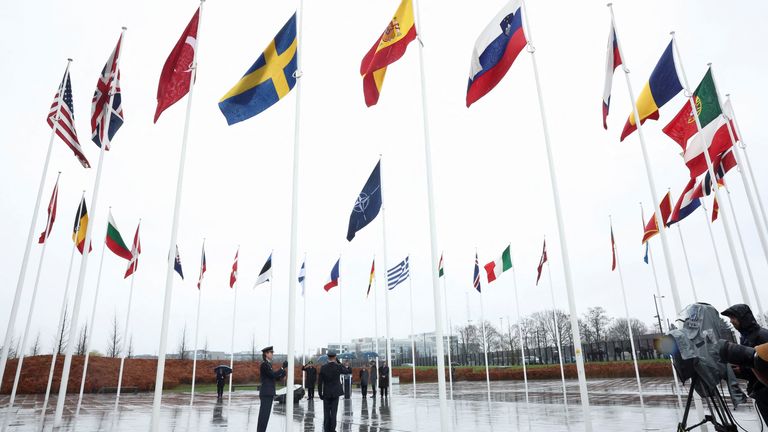The choice of JD Vance – an arch critic of US aid to Ukraine and of American taxpayers bankrolling European security – as Donald Trump’s running mate signals a “very significant shift” in US foreign policy should they win the election, defence insiders say.
The 39-year-old Republican senator, a former Marine and relative political novice, could well be the next vice-president of the US come January.
It means his views on foreign affairs, expressed in multiple interviews, articles and speeches, are being studied with a new intensity.
They reveal – in line with his boss – a forceful push to put America first even at the expense of old alliances, such as the transatlantic NATO bond as well as the West’s fight to counter Russia’s full-scale invasion of Ukraine.
Instead, a priority focus is on the threat posed by China and countering Iran.
A former senior British defence official predicted that a Trump-Vance White House would lead to the “immediate termination of all financial and military aid for Ukraine”.
A second defence source was less sure, asking whether the pair were “really going to strangle Ukraine” on their watch?
But Mr Vance – who has opposed multi-billion-dollar packages of assistance to Kyiv – admitted in a 2022 podcast interview with Steve Bannon, a Trump adviser, “I don’t really care what happens in Ukraine one way or the other”, according to the New York Times.
He has also written that the US and Europe lack the industrial production capacity to be able to make the volume of weapons needed for Ukraine to win the war.
Instead, Trump’s new running mate advocates a peace deal between Russia and Ukraine.
In comments that will alarm Kyiv and allies such as London, he has dismissed as “fantastical” the idea – a core goal of Ukrainian President Volodymyr Zelenskyy – that Ukraine will regain all territory seized by Russian forces since the first invasion of Crimea in 2014.
“By committing to a defensive strategy, Ukraine can preserve its precious military manpower, stop the bleeding and provide time for negotiations to commence,” Mr Vance wrote in an article for the New York Times in April.
It underlines why the prospect of a second Trump presidency, with Mr Vance as vice-president, means huge new anxiety for Ukraine after more than two and a half years of full-scale war.
Read more:
Vance suggests UK is ‘first Islamist country with nuclear weapons’
How the security operation around Trump shooting unfolded
“I do hope that there will be other people in Trump’s team – like [former secretary of state Mike] Pompeo – who will balance Vance’s approach,” said Liudmyla Dolhonovska, an expert in Strategic Communications, based in Kyiv.
“If I were an MP or a government official, I would immediately request a meeting with Vance to try to convince him to support Ukraine.”
It is not just Ukraine that should be worried about the impact of Mr Vance on the future shape of US foreign policy.
The UK and European NATO allies should be planning in earnest right now for a massive ramping up – at speed – of their own ability to defend themselves and deter threats if a second Trump White House becomes, as predicated, far more isolationist and focused on threats coming from China rather than Russia’s threat to Europe.
The former senior UK defence official, speaking on condition of anonymity, predicted that a second Trump administration would “start the process of dismantling NATO – I’m not exaggerating”.
Writing in the Financial Times in February, Mr Vance warned that the US has “provided a blanket of security to Europe for far too long”.
He was highly critical of how the UK and other European states cut back on defence budgets and slashed the size of their respective armed forces and ability to fight in the wake of the end of the Cold War, instead relying on the protection of the more powerful US military.
“As the American defence budget nears $1tn per year, we ought to view the money Europe hasn’t spent on defence for what it really is: an implied tax on the American people to allow for the security of Europe,” Mr Vance wrote.
He added: “The question each European nation needs to ask itself is this: are you prepared to defend yourself? And the question the US must ask is: if our European allies can’t even defend themselves, are they allies, or clients?”



